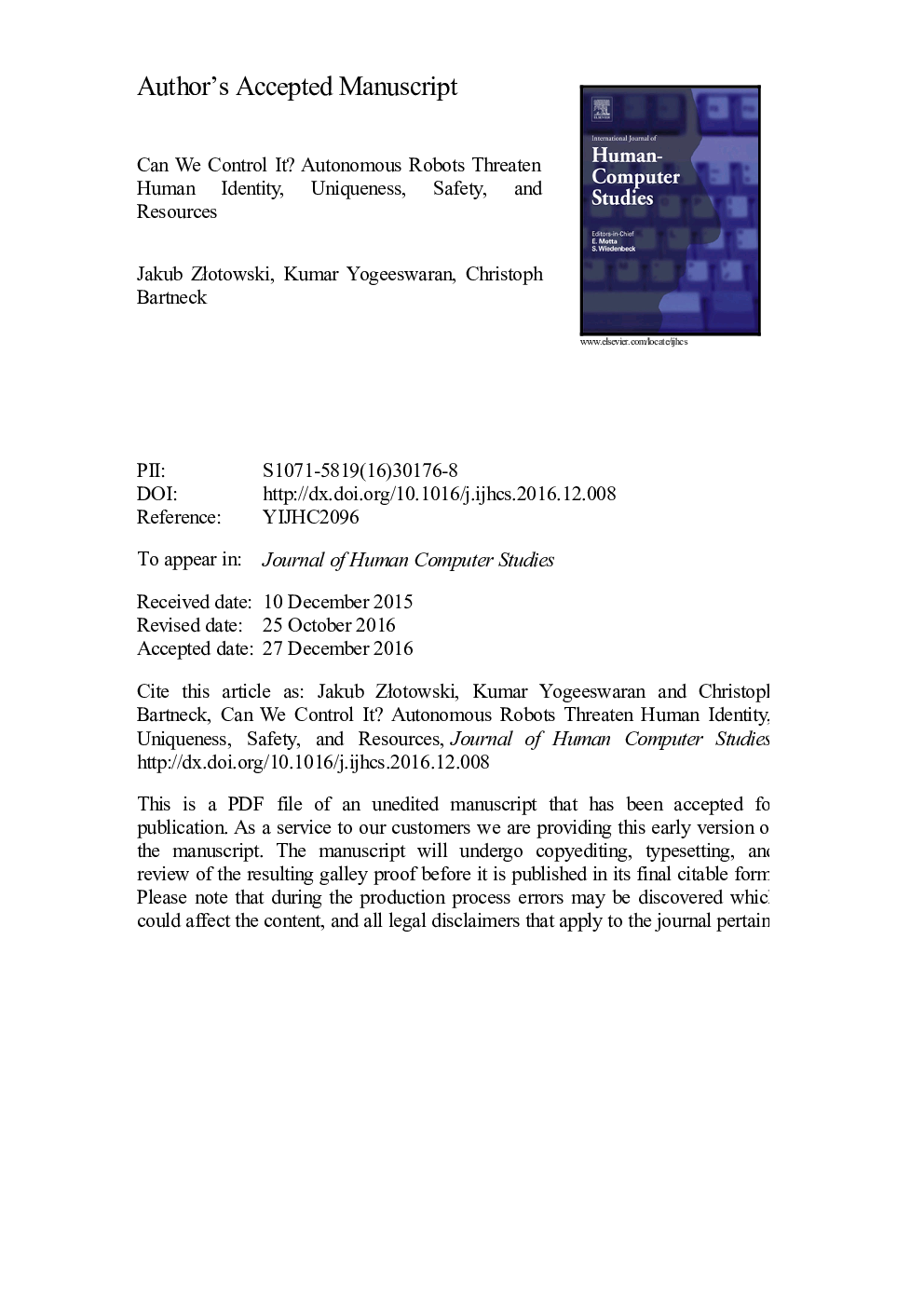| Article ID | Journal | Published Year | Pages | File Type |
|---|---|---|---|---|
| 4945807 | International Journal of Human-Computer Studies | 2017 | 29 Pages |
Abstract
Emergence of autonomous machines is a hotly debated topic in mass-media. However, previous research has not empirically investigated whether the perceived autonomy of robots affects their social acceptance. In this study we examined the impact of perceived robot autonomy on realistic threats (threats to human jobs, resources and safety) and identity threats (threats to human identity and distinctiveness), attitude toward robots, and support for robotics research. US based participants watched a video of robots performing various tasks - these robots were presented as either autonomous and capable of disregarding human commands or non-autonomous and only capable of following human commands. Participants who watched videos of supposedly autonomous robots perceived robots in general to be significantly more threatening to humans (both realistic and identity threats) than those who watched a video of non-autonomous robots. Furthermore, exposure to autonomous robots evoked stronger negative attitude towards robots in general and more opposition to robotics research than exposure to non-autonomous robots. Both realistic and identity threats mediated the increase in negative attitudes toward robots and opposition to robotics research, although realistic threats were often the stronger mediator of the two. Our findings have practical implications for research on AI and open new questions on the relationship between robot autonomy and their social impact.
Related Topics
Physical Sciences and Engineering
Computer Science
Artificial Intelligence
Authors
Jakub ZÅotowski, Kumar Yogeeswaran, Christoph Bartneck,
